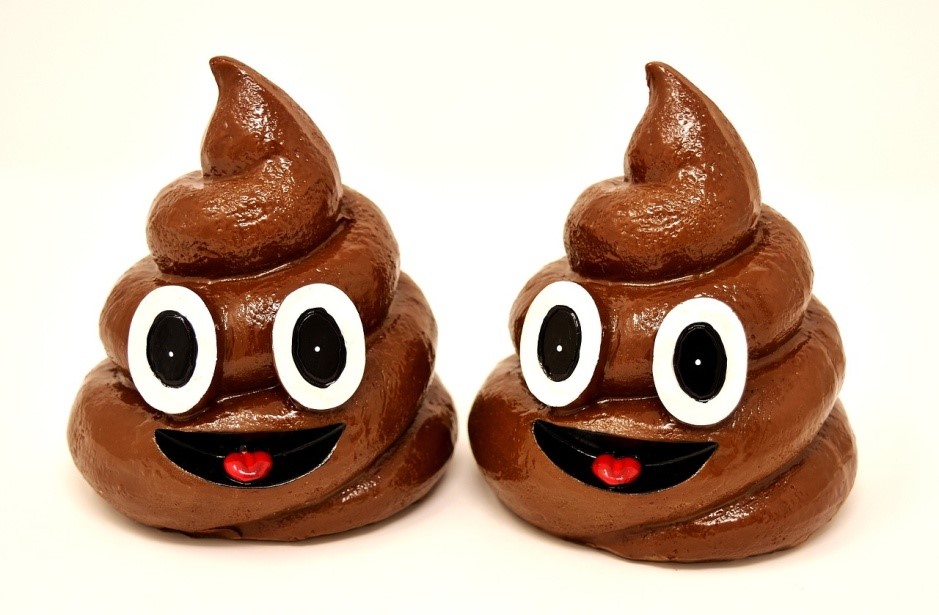
Our microbiologist, dr. Clara Belzer answered this question from Noa (age 12) on Dutch national radio, and explained her research on gut-microbes and health.
“Well the answer is yes and no”, starts Clara Belzer. So it’s a great question!
Yes: feces gets to be more similar (both in looks and in smell) if you eat similar things. For instance eating corn or red beets gives a distinct colour to poop, and eating eggs a distinct smell. So what you eat directly influences your feces.
At the same time, everyone’s excrements are unique. This is due to the unique assembly of bacteria that live in your gut. When you’re born, the first bacteria colonize your gut. During the rest of your life, this colony of bacteria and other microbes keeps developing; growing and changing in response to your diet, illnesses, stress, antibiotic treatments and other influences. The bacteria in your gut help with the digestion of the food you eat. By breaking down the food molecules they can convert these to vital substances such as vitamins and energy. The substances that are not digested, or are left over, leave the body as poop. So because every individual has a unique composition of gut-bacteria, everyone’s poop is unique.
Interestingly, genetics also influence the composition of gut-bacteria. Therefore, the feces of family members is more similar than that of non-family members, and even twins have more similar poop compared to other siblings.
But diet has the biggest influence on your gut-bacteria. If you eat healthy, your bacteria can function well and produce essential substances and energy. If you eat unhealthy, this can disturb the functioning of your gut-bacteria, and this may even contribute to developing for instance diabetes or obesity. Clara Belzer tells that we can even see from someone’s feces if this person has diabetes, or an infection in the intestines.
So studying someone’s poop can tell if the person is healthy or unhealthy. In Clara Belzer’s research she analyzes the gut-bacteria of an individual, to explore if in the future we can advice to this person on how to adapt his or her diet to improve the assembly and functioning of the gut-bacteria. “For instance, if we can’t find certain important bacteria in someone’s feces, we want to be able to advice this person to eat whole-wheat bread. Then hopefully this stimulates the growth of this specific bacteria and makes the person feel more healthy and have a better stool”, she explains.
Clara Belzer is also using mouse models to study a special bacteria, called Akkermansia muciniphila, that in the future may help in treating diabetes and losing weight. She hopes that within the next ten years this will appear as a substance that you can buy in supermarkets in order to improve your health.
You can listen to the interview (in Dutch) here: https://www.nporadio1.nl/wetenschap-techniek/13810-hebben-mensen-die-hetzelfde-eten-ook-dezelfde-poep?fbclid=IwAR1Ihrnmqcq-APOqWGIyvnBTC0ST-KGnhVeRFF2zO0epT0eGuLvbzykc1Eo
Dr. Clara Belzer is assistant professor at Wageningen University in The Netherlands. She is a microbiologist and studies the microbes in the gut, specifically their role in health and disease.
